Helping Older Adults Stay Hydrated This July
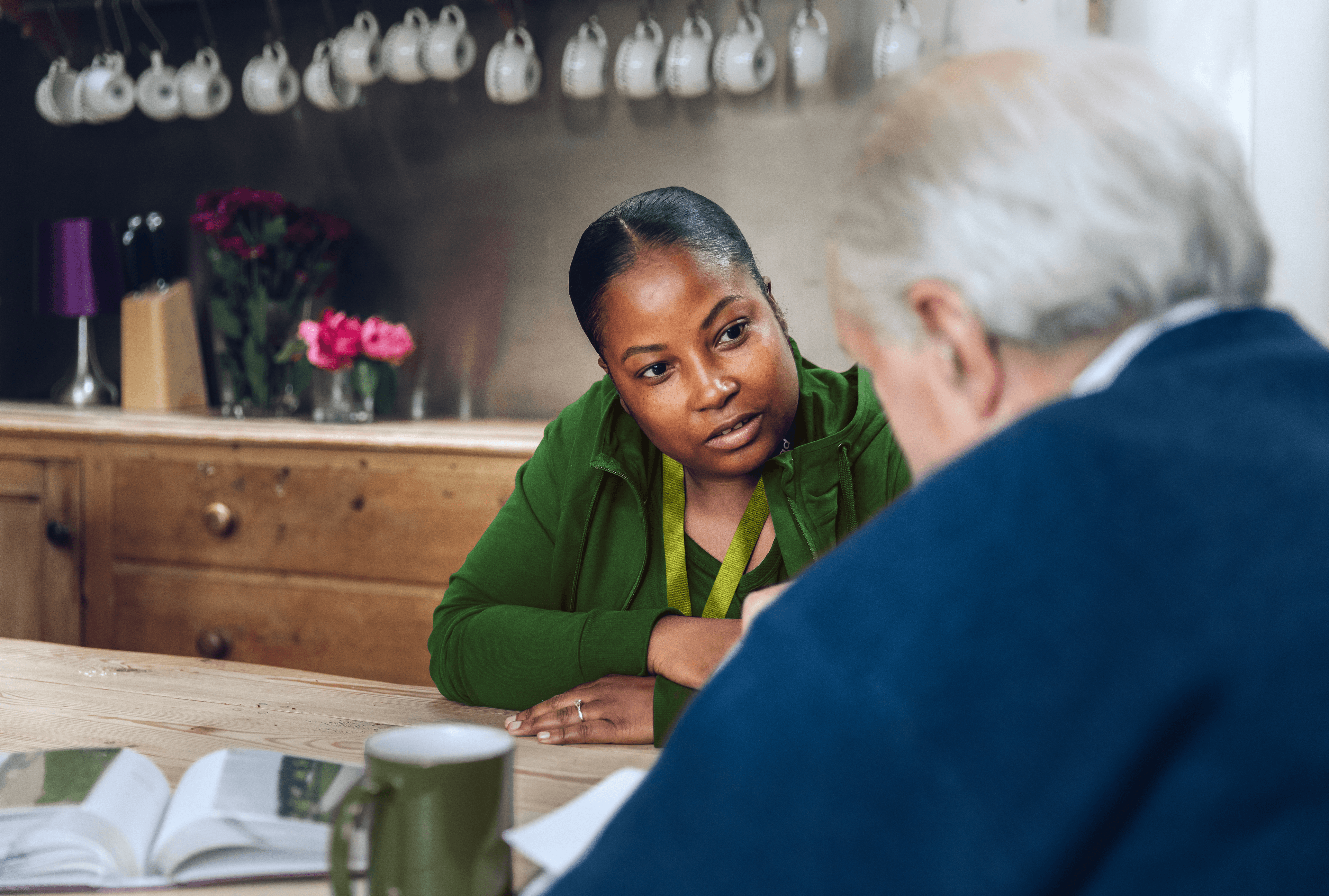
Why Summer Hydration Matters for Loved Ones at Home in East Herts
As July brings long, sunny days across East Hertfordshire and Uttlesford, it’s the perfect time to check in on how well our older loved ones are staying hydrated. So, are your elderly loved ones drinking enough? For individuals who receive home care or support with daily routines, drinking fluids regularly can easily be overlooked. Dehydration in later life is common but preventable, with the right encouragement, knowledge, and habits. In this blog, we’ll explore practical ways to stay hydrated, highlight foods and drinks that support fluid intake, and explain what to avoid, like salty snacks or caffeinated drinks that can lead to fluid loss. At Home Instead East Herts, we’re here to make healthy hydration part of everyday life.
Read on to discover how you can spot the signs of dehydration, support hydration through nutritious meals, and build small, daily habits that can make a big difference for older people at home this summer.
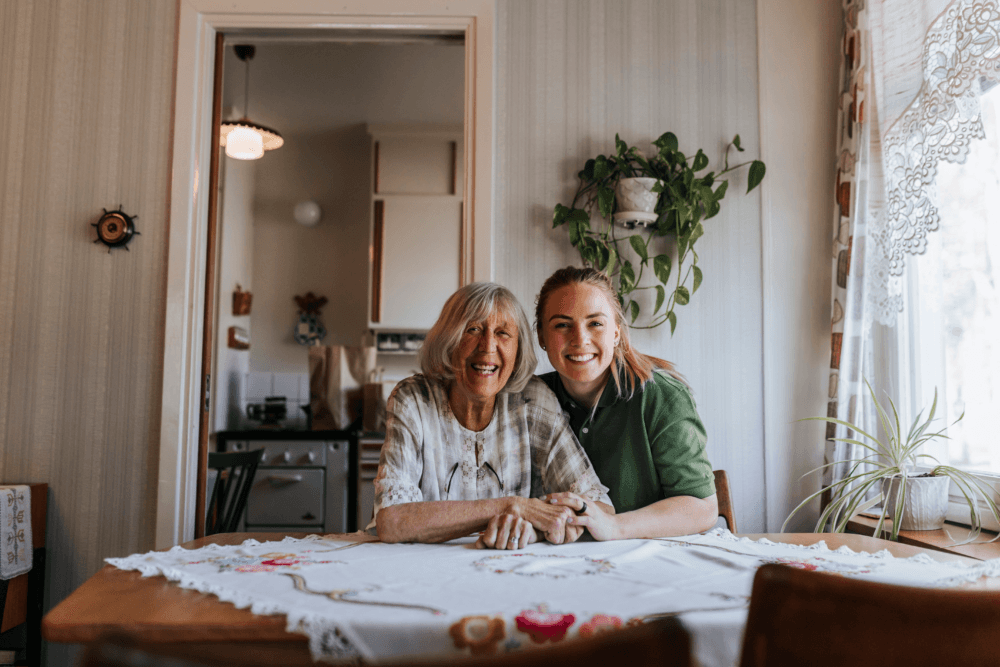
Why Older Adults Are More Vulnerable to Dehydration
As we age, the body undergoes several changes that make maintaining hydration more difficult:
1. Reduced Thirst Awareness
The sensation of thirst becomes less reliable with age. Many older adults don’t feel thirsty until they are already dehydrated, so relying on thirst cues may not be the most reliable option.
2. Declining Kidney Function
Ageing kidneys are less effective at conserving fluids and balancing electrolytes. This speeds up fluid loss, especially in warm weather or when unwell.
3. Loss of Muscle Mass
Muscle stores water, and with natural muscle loss in older age, the body’s capacity to hold water decreases. This can contribute to feelings of fatigue and weakness.
4. Medication and Health Conditions
Common medications, including diuretics, corticosteroids and antihistamines, increase fluid loss or reduce the feeling of thirst. Meanwhile, conditions such as dementia, Parkinson’s or swallowing difficulties make it harder to drink regularly or independently.

Signs of Dehydration: What to Look For
Staying alert to early signs of dehydration is vital for preventing more serious issues.
Mild to Moderate Symptoms
- Dry mouth or sticky saliva
- Dizziness or headaches
- Muscle cramps
- Reduced urine output or dark urine
- Fatigue or confusion
- Trouble sleeping
- Flaky or dry skin
Severe Dehydration (Requires Immediate Medical Attention)
- Rapid heart rate
- Severe confusion or disorientation
- Seizures
- No tears or sweat
- Sunken eyes
- Swollen abdomen
- Signs of kidney problems
In more advanced situations, oral fluids might not be enough, and hospital treatment is necessary to restore balance.
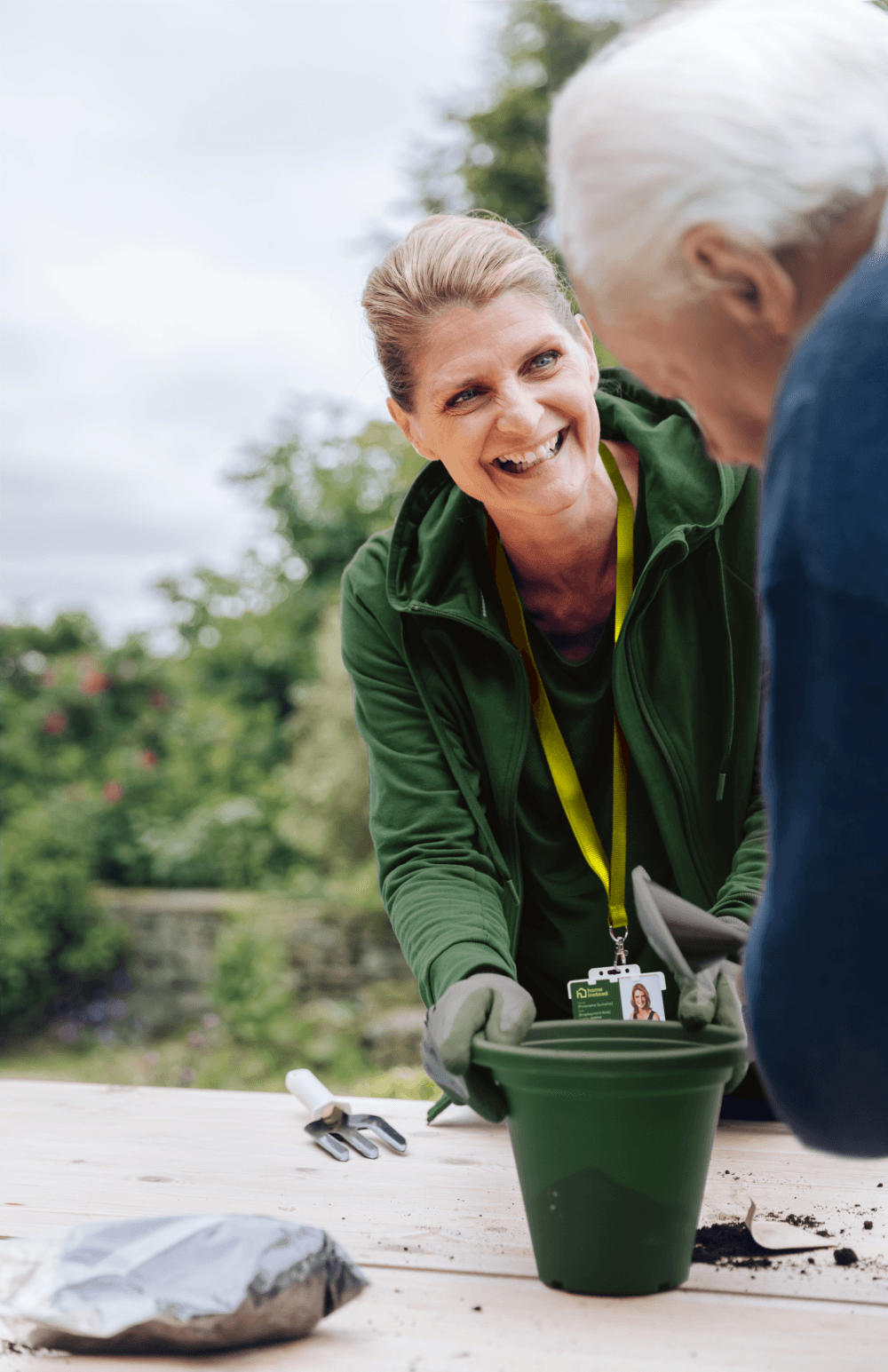
Why Hydration Is About More Than Health — It’s About Dignity
Many older adults limit their fluid intake to avoid frequent trips to the toilet or due to worries about incontinence or possible accidents, particularly overnight. But skipping drinks can lead to an increased risk of urinary tract infections, confusion, and falls.
Care Professionals can make a big difference by:
- Making toilets easily accessible
- Encouraging regular sips throughout the day
- Reducing anxiety around toileting
- Making drinking a calm, social activity
Simple actions, like offering a favourite cup of tea or sharing a drink during a quiet chat, can help overcome fear or forgetfulness.
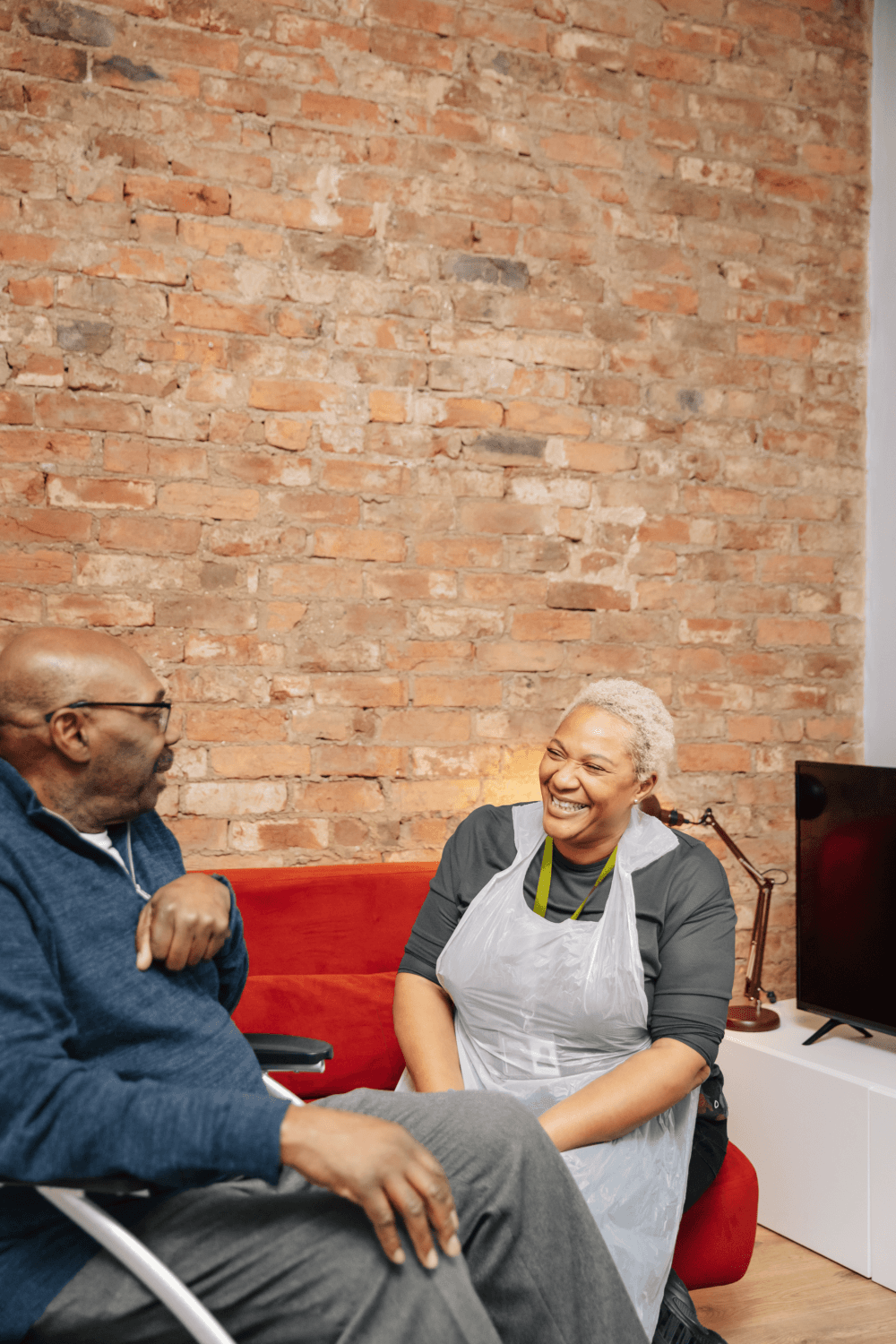
Best Ways for Older Adults to Stay Hydrated
Offer Fluids Regularly
Don’t wait for meals. Keep drinks close at hand and offer sips frequently. Fruit teas, decaf options, coconut water, or lightly flavoured waters can help if someone dislikes plain water.
Use Water-Rich Foods
Serve cucumbers, tomatoes, oranges, melon, courgettes and lettuce. These contribute to hydration, particularly for those who struggle to drink larger volumes.
Keep Drinks Appealing
Serve drinks in cups that are easy to hold. Use straws or lidded cups if grip or swallowing is difficult. Try ice lollies, jelly or soups for variety.
Consider Timing
Encourage fluid intake earlier in the day to reduce overnight toilet visits. That said, never discourage evening drinks entirely, it’s about balance, not restriction.
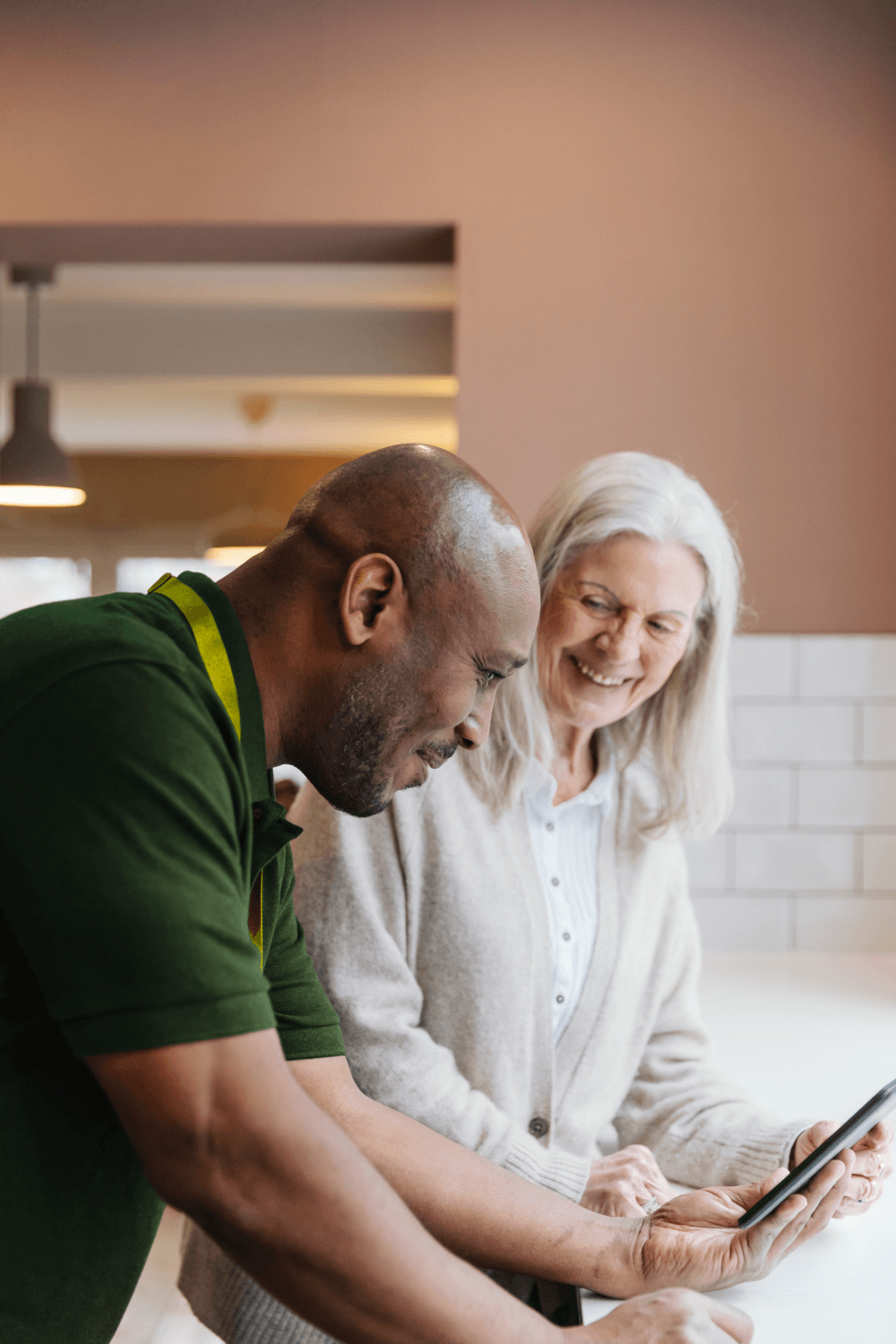
Foods and Drinks to Avoid or Limit
Drinks That Can Dehydrate
- Caffeinated coffee or strong black tea
- Alcohol
- Fizzy drinks with high sugar or caffeine content
These act as diuretics or irritate the bladder, which can lead to needing the toilet more often, which may affect hydration.
Foods That Increase Dehydration Risk
- Salty snacks like crisps or salted nuts
- Processed meats
- Ready meals high in sodium
Reducing salt where possible can help minimise thirst and prevent unnecessary fluid loss.
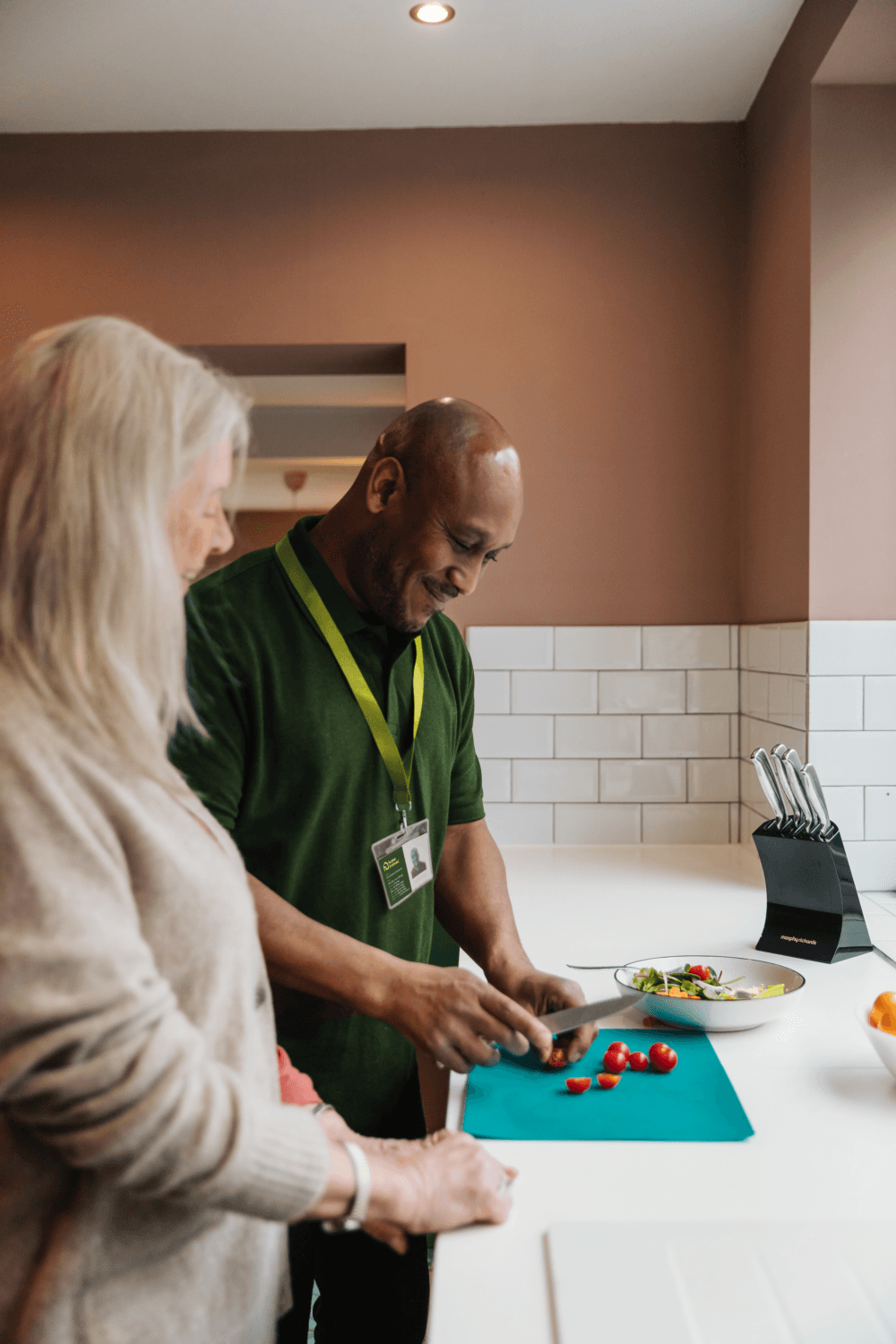
Hydrating Foods to Encourage
- Cucumber slices or celery sticks
- Fresh fruit like watermelon, strawberries, oranges and grapes
- Homemade soups and stews
- Smoothies with yoghurt and fruit
- Sugar-free jelly
These options not only support hydration but also provide essential vitamins, minerals and fibre.
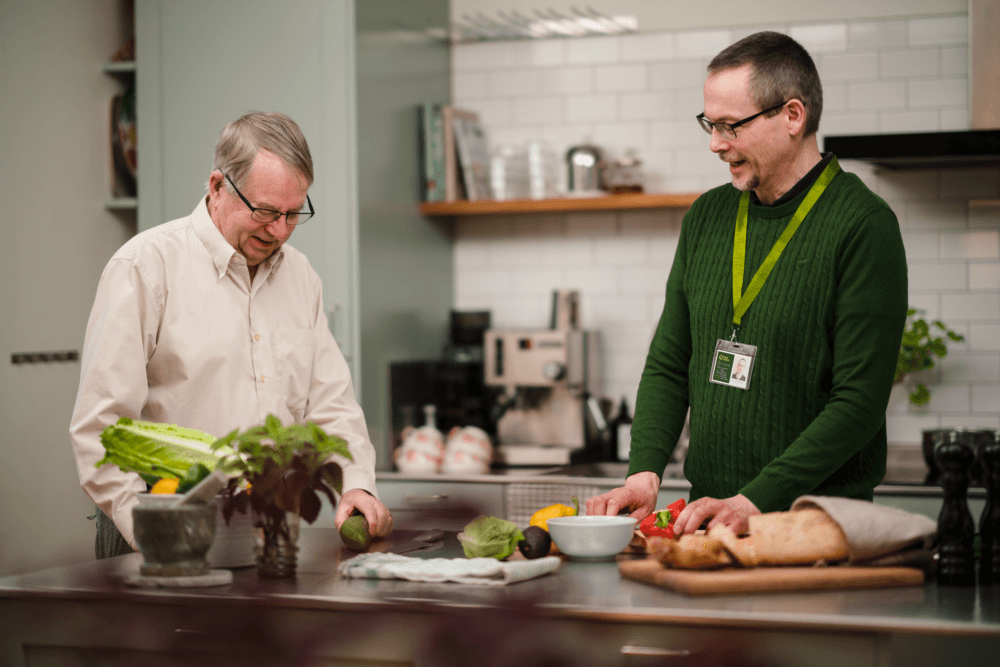
The Link Between Hydration and Nutrition
Hydration alone isn’t enough, good nutrition is equally important in later life. It supports immunity, maintains muscle strength, and helps reduce recovery times after illness or injury.
Key Nutrients for Older Adults
- Protein: Chicken, fish, eggs, beans
- Carbohydrates: Rice, pasta, potatoes
- Calcium: Dairy, green vegetables
- Healthy Fats: Olive oil, nuts, oily fish
- Fibre: Whole grains, fruit and veg
Carers can assist by planning balanced meals, supporting appetite, and adjusting dishes to suit conditions like diabetes or swallowing difficulty.
Supplements That May Help
- Vitamin D: Supports bones and immune health; older adults may benefit from 10 micrograms daily
- Calcium: Needed for bone strength
- Vitamin B12: Supports energy and nerve function; absorption declines with age
Always speak with a GP before starting any supplement.
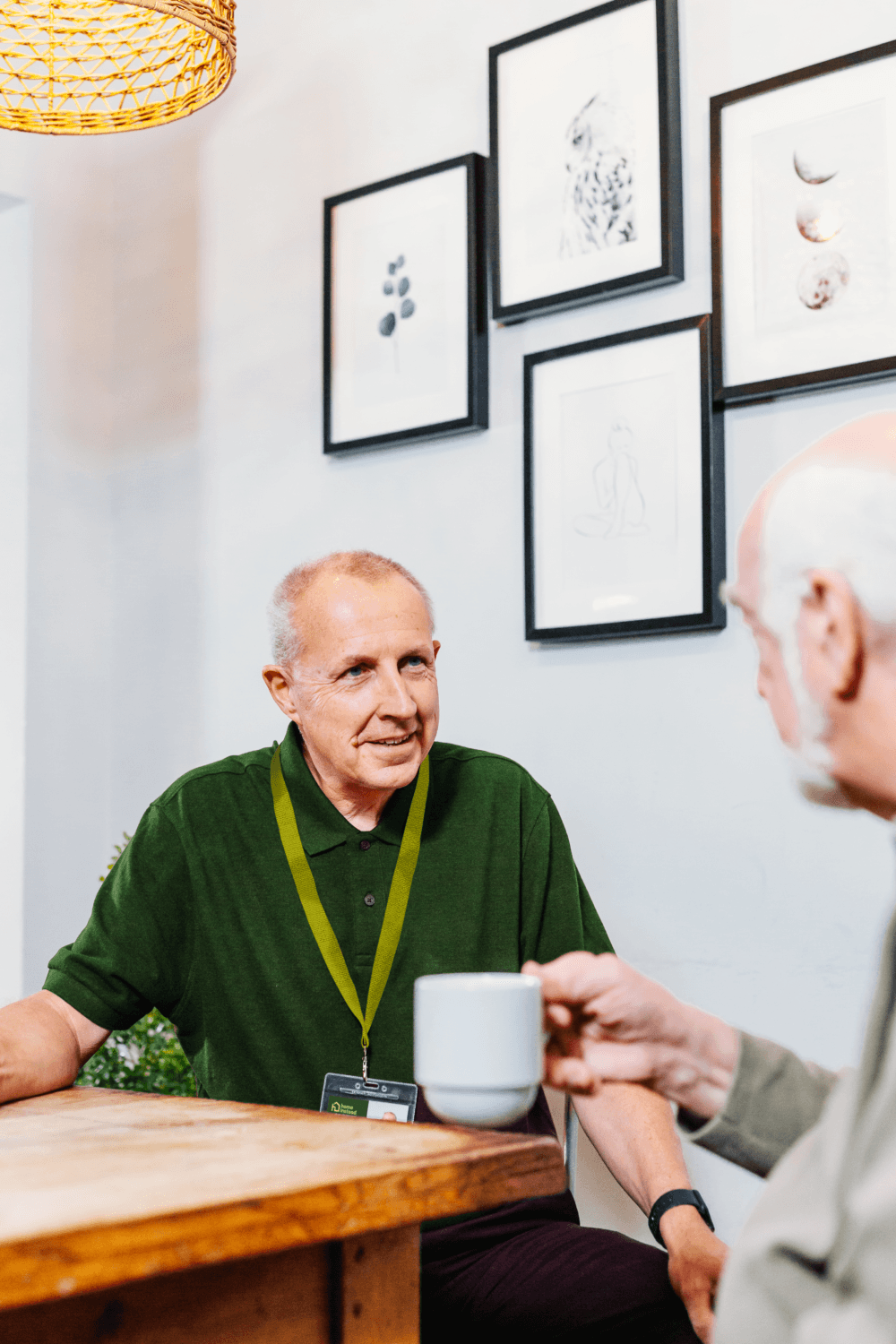
Making Mealtimes More Enjoyable
Eating and drinking should feel relaxed, not rushed. Live-in care offers a personalised approach, allowing meals to happen when someone feels ready, not on a rigid schedule.
At Home Instead East Herts, our care professionals can:
- Prepare favourite home-cooked meals
- Support individual routines and food preferences
- Assist with feeding if required
- Offer mealtime companionship
For those with dementia, familiar dishes and routine can ease anxiety, support appetite, and encourage hydration without pressure.
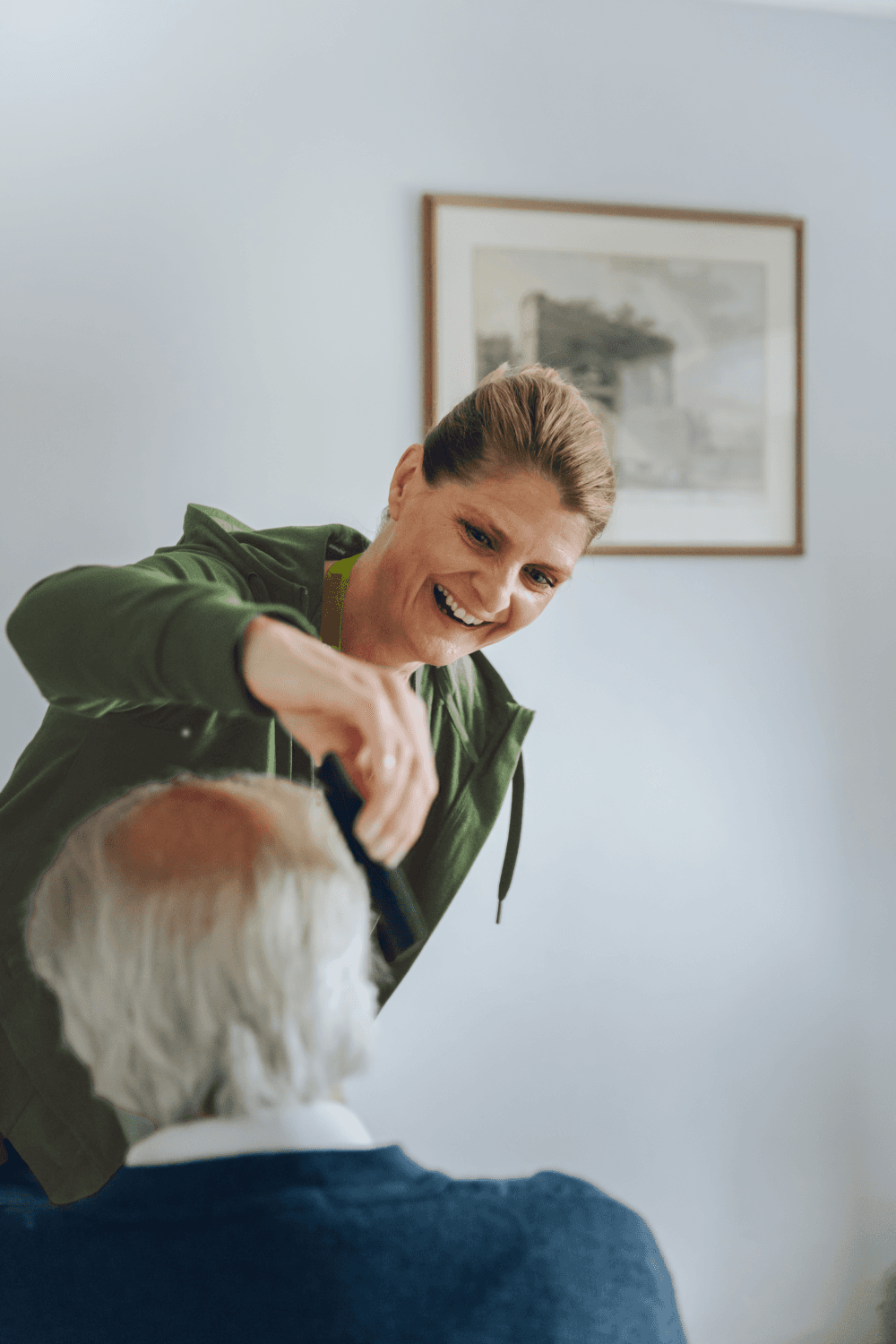
Hot Weather Tips: Staying Safe in Summer
Older adults are less efficient at regulating body temperature, meaning they’re at higher risk of heat-related illness.
Warm Weather Strategies
- Keep blinds closed during peak heat
- Use fans or cooling cloths
- Dress in light, breathable clothing
- Offer cool drinks and hydrating snacks
- Avoid going outdoors during midday heat
Carers play a vital role in monitoring for signs of heat exhaustion, especially when temperatures rise unexpectedly.
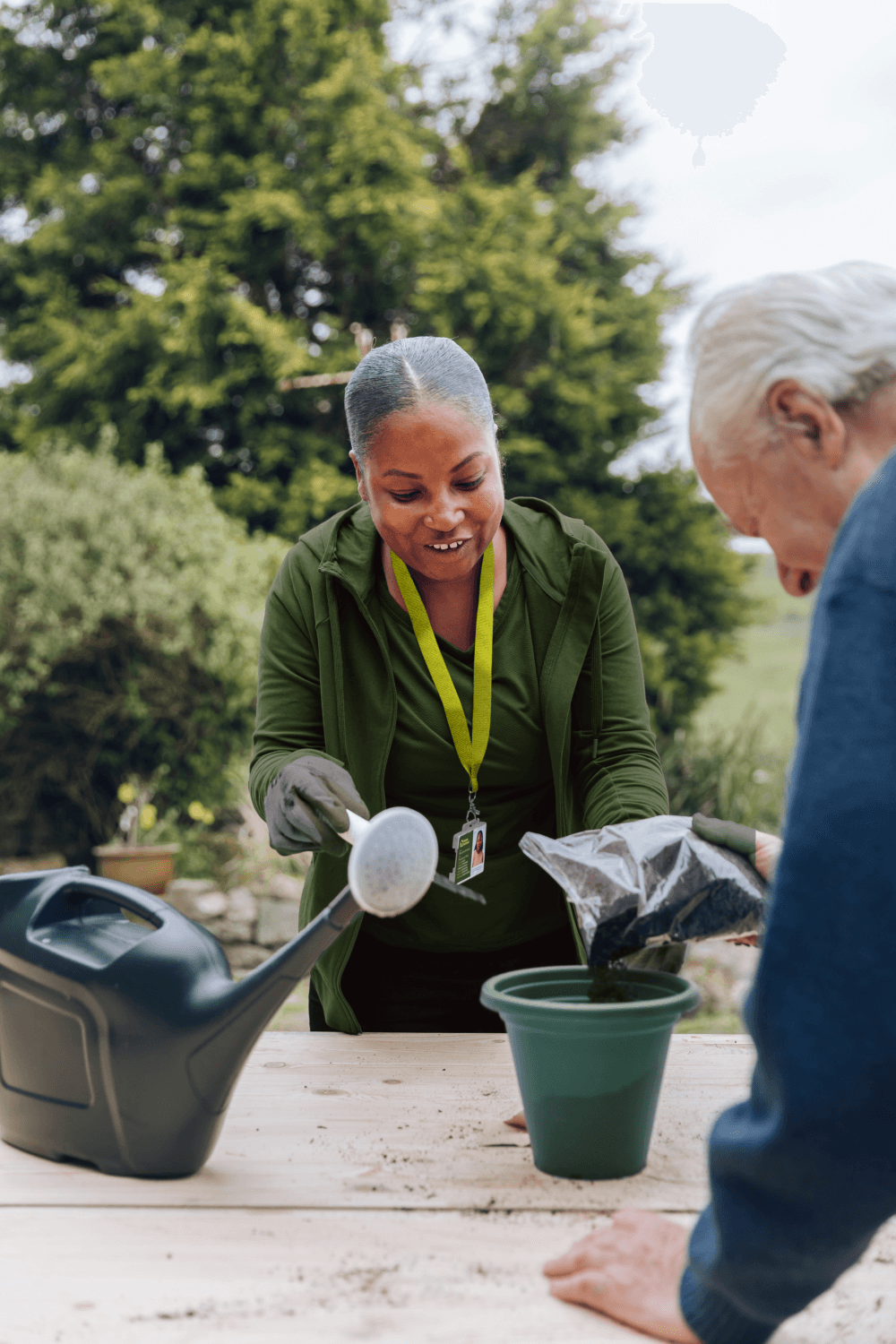
Practical Hydration Tips for Everyday Life
Creating habits can support older adults to stay hydrated year-round, throughout the year, not only during the summer months.
- Set regular drink times (e.g. with medication or TV shows)
- Leave water bottles within reach
- Use jugs or glasses with measurement markings to track intake
- Offer smaller drinks more often
- Use visual cues (like bright cups or prompts) for those with memory loss
With gentle reminders and a compassionate approach, staying hydrated becomes a manageable routine, not a burden.

Supporting Hydration at Home
At Home Instead East Herts and Uttlesford, we know that daily tasks like drinking water or planning meals are closely linked to independence and dignity. Our tailored home care services are designed to support every aspect of wellbeing, including hydration, nutrition, and the confidence that comes from knowing someone is there to help.
Whether you need a few hours of support a week or full-time live-in care, we’re here to help.
Because sometimes the smallest things, like a glass of water or a warm meal, can make the biggest difference.
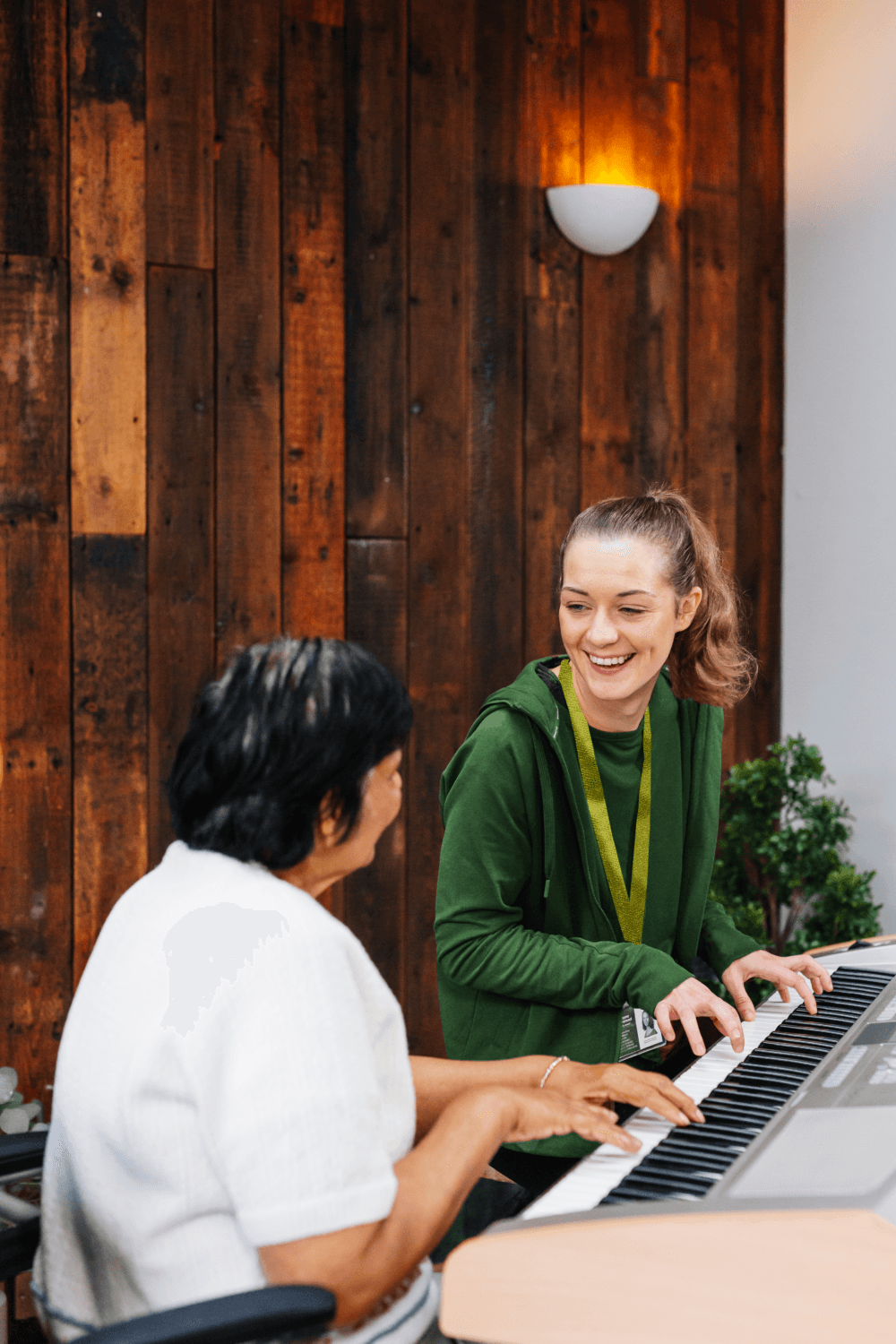
Areas We Serve
Sawbridgeworth, Bishop’s Stortford, Hertford & the surrounding areas
CM21 0, CM21 9, CM22 6, CM22 7, CM23 1, CM23 2, CM23 3, CM23 4, CM23 5, CM24 1, CM24 8, CM6 1, EN10 6, EN10 7, EN11 0, EN11 8, EN11 9, SG10 6, SG11 1, SG11 2, SG12 0, SG12 7, SG12 8, SG12 9, SG13 7, SG13 8, SG14 1, SG14 2, SG14 3, SG2 7, SG9 0, SG9 9
Allen House, Business Centre, The Maltings, Station Rd, Sawbridgeworth CM21 9JX, UK
01279 721443